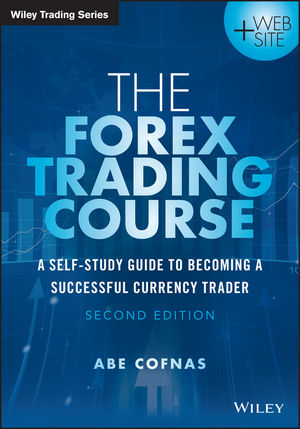Top Forex Trading Course Recommendations for Traders at Any Level
Comprehending the Principles of Money Exchange in Today's Global Market
In a significantly interconnected global economy, understanding the principles of money exchange is essential for stakeholders throughout different markets. As central banks apply impact and technological advancements reshape money trading, the implications for global commerce are far-ranging.
The Essentials of Money Exchange
Money exchange is an essential aspect of the international economic climate, promoting worldwide profession and investment. It entails the conversion of one currency right into an additional and is necessary for organizations, governments, and individuals who engage in cross-border transactions. The money exchange process occurs in the fx market (Forex), which is the biggest and most fluid economic market in the globe, operating 24-hour a day, five days a week.
At its core, money exchange is driven by supply and demand characteristics. Currencies are sold pairs, such as EUR/USD or GBP/JPY, and the exchange price between them shows just how much one money deserves in terms of another. This price varies continually because of trade circulations, funding activities, and various other market tasks.
Participants in the Foreign exchange market array from large banks and international firms to individual capitalists and travelers. Each individual might have various purposes, such as hedging versus exchange rate threat, speculating on currency motions, or assisting in global acquisitions. Recognizing the essentials of money exchange is crucial for making informed decisions in the global market, as exchange rates can dramatically impact the price of products and services, financial investment returns, and economic stability.
Elements Influencing Exchange Fees
Currency exchange rate are formed by a complex interplay of numerous economic variables, reflecting the relative toughness and security of nationwide economic climates. Key among these factors is rates of interest differentials. Higher interest rates use loan providers much better returns loved one to various other nations, bring in even more international funding and triggering the currency to value. Alternatively, rising cost of living prices play an essential function; currencies in nations with reduced inflation prices often tend to appreciate as purchasing power rises about higher-inflation economies.
Additionally, trade equilibriums affect money worth. A country with a significant trade surplus normally sees its money appreciate due to enhanced foreign demand for its products and solutions, while a profession deficit can compromise the money.
Political security and financial efficiency are crucial as well; countries viewed as low-risk locations for investment have a tendency to see their money value. forex trading course. Market speculation can additionally drive exchange rate variations, as traders prepare for future activities based on present economic signs and geopolitical occasions. These elements jointly add to the vibrant nature of exchange rates in the worldwide market
The Role of Central Financial Institutions

Reserve banks additionally take part in forex treatments to remedy extreme volatility or imbalances in exchange rates. These interventions could entail purchasing or selling international currencies to keep a desired exchange rate degree. Furthermore, main banks hold significant fx books, which can be deployed purposefully to support their money.

Technology and Money Trading
While reserve banks shape the overarching landscape of money exchange, technological improvements have actually transformed the auto mechanics of money trading itself. The expansion of digital platforms Recommended Reading has equalized access to fx markets, making it possible for individual traders to participate together with institutional capitalists. Online trading platforms, outfitted with real-time information and analytical tools, facilitate notified decision-making and have actually added to raised market liquidity.
Algorithmic trading, powered by sophisticated software, has revolutionized the speed and performance of money trading. Formulas carry out trades based on predefined standards, reducing human treatment and decreasing the time required to capitalize on market activities.
Cryptocurrencies, underpinned by blockchain, have actually introduced a brand-new measurement to money trading, triggering market participants to adjust to an evolving economic ecosystem. As modern technology continues to develop, its impact on money trading will likely deepen, forming future market characteristics - forex trading course.
Influence On Global Profession
In the interconnected landscape of global trade, currency exchange plays a critical function in shaping economic partnerships in between countries. A solid money can make a country's exports extra pricey and much less eye-catching on the international phase, possibly lowering market share.
Currency variations can additionally lead to financial unpredictabilities, making complex lasting preparation for international firms. Organizations often hedge against these risks their website via economic instruments to support expenses and profits. Exchange rates affect international direct investment (FDI) choices, as capitalists seek beneficial conditions to make best use of returns, influencing funding flows throughout borders.
Moreover, federal governments aim to maintain secure exchange rates to foster foreseeable trading conditions, occasionally intervening in fx markets to attain economic purposes. Main banks might adjust rate of interest or apply monetary plans to influence money stamina, thereby affecting profession dynamics.
Conclusion
A thorough grasp of money exchange fundamentals is vital for navigating the intricacies of the international market. Exchange rates, formed by rates of interest, rising cost of living, and economic development, are pivotal in figuring out money appraisals. Reserve banks play an essential role in affecting these prices, while developments in innovation have actually transformed currency trading. Comprehending these components is vital for efficient financial planning and threat management, as currency changes substantially impact worldwide profession and financial investment approaches in an interconnected economic environment.